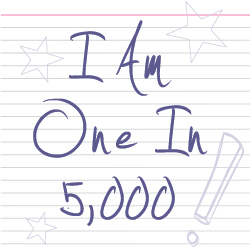How You Become A Parent Doesn’t Matter
 I’m from London in the UK, and I have MRKH. At 17 I was told I had no uterus and I knew something else wasn’t quite right. I was sure I had the condition. I was diagnosed with MRKH at age 20, during my second year of University, after having a lot of tests done including two ultrasounds and an MRI. Luckily, I got through the second year of my degree with amazing support from my friends and a lot of talking, some crying, and figuring things out with them.
I’m from London in the UK, and I have MRKH. At 17 I was told I had no uterus and I knew something else wasn’t quite right. I was sure I had the condition. I was diagnosed with MRKH at age 20, during my second year of University, after having a lot of tests done including two ultrasounds and an MRI. Luckily, I got through the second year of my degree with amazing support from my friends and a lot of talking, some crying, and figuring things out with them.
I was referred to University College Hospital London in the summer of 2013 where I spent some time with a psychologist who helped me deal with some of the emotional aspects of the condition. I was also given dilators and taught how to use them during a three-hour appointment at the hospital. It was difficult, but I managed to get used to it quite quickly.
I’m still going back to the hospital for follow-ups and to see my psychologist as I am far from finished with dilation yet, but it feels good to be taking control of my future. As for children, I plan to adopt. While I would love to be able to carry a baby myself, it was always my plan to adopt children too. I feel that there are many children born into this world without parents to love them, so if I can be that person then that’s more than enough for me. I’ll love my child just the same. Sometimes it still hurts that I can’t carry my own baby, but then I think about the difference I want to make in a child’s life when I adopt them, and that makes me very happy.
I’d like to end on something my friends and my psychologist have instilled in me over the past year: “It’s not how you get to be a parent that matters – it’s how you are a parent when that child comes into your life, whichever way it happens.”
-May

